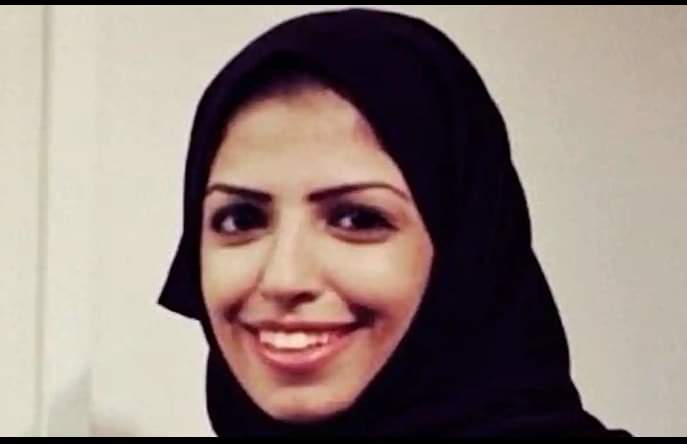A Saudi student at Leeds University in the United Kingdom has been sentenced to 34 years in prison for having a Twitter account and for following and retweeting dissidents and activists.
The Saudi woman, identified as Salma al-Shehab, 34, a mother of two young children, had returned home to the kingdom for a holiday, The UK Guardian reports.
The sentencing by Saudi’s special terrorist court was handed down weeks after US president Joe Biden’s visit to Saudi Arabia.
Meanwhile, human rights activists had warned that Biden’s visit to the kingdom could embolden the country to escalate its crackdown on dissidents and other pro-democracy activists.
The case also marks the latest example of how crown prince Mohammed bin Salman has targeted Twitter users in his campaign of repression, while simultaneously controlling a major indirect stake in the US social media company through Saudi’s sovereign wealth fund, the Public Investment Fund (PIF).
Salma al-Shehab was initially sentenced to serve three years in prison for the “crime” of using an internet website to “cause public unrest and destabilise civil and national security”.
But an appeals court on Monday handed down the new sentence – 34 years in prison followed by a 34-year travel ban – after a public prosecutor asked the court to consider other alleged crimes.
According to a translation of the court records, which were seen by the Guardian, the new charges include the allegation that Shehab was “assisting those who seek to cause public unrest and destabilise civil and national security by following their Twitter accounts” and by re-tweeting their tweets. It is believed that Shehab may still be able to seek a new appeal in the case.
Shehab described herself on Instagram – where she had 159 followers – as a dental hygienist, medical educator, PhD student at Leeds University and lecturer at Princess Nourah bint Abdulrahman University, and as a wife and a mother to her sons, Noah and Adam.
Her Twitter profile showed she had 2,597 followers. Among tweets about Covid-19 burnout and pictures of her young children, Shehab sometimes retweeted tweets by Saudi dissidents living in exile, which called for the release of political prisoners in the kingdom. She seemed to support the case of Loujain al-Hathloul, a prominent Saudi feminist activist who was previously imprisoned is alleged to have been tortured for supporting driving rights for women, and is now living under a travel ban.
Twitter declined to comment on the case and did not respond to specific questions about what – if any – influence Saudi Arabia has over the company. Twitter previously did not respond to questions by the Guardian about why a senior aide to Prince Mohammed, Bader al-Asaker, has been allowed to keep a verified Twitter account with more than 2 million followers, despite US government allegations that he orchestrated an illegal infiltration of the company which led anonymous Twitter users to be identified and jailed by the Saudi government. One former Twitter employee has been convicted by a US court in connection to the case.
One of Twitter’s biggest investors is the Saudi billionaire Prince Alwaleed bin Talal, who owns more than 5% of Twitter through his investment company, Kingdom Holdings. While Prince Alwaleed still serves as chairman of the company, his control over the group faced questions in the US media, including the Wall Street Journal, after it emerged that the Saudi royal – a cousin of the crown prince – had been held captive at the Ritz Carlton in Riyadh for 83 days. The incident was part of a broader purge led by Prince Mohammed against other members of the royal family and businessmen, and involved allegations of torture, coercion and expropriation of billions in assets into Saudi coffers.
In a 2018 Bloomberg interview of Prince Alwaleed, which was conducted in Riyadh seven weeks after his release, the billionaire acknowledged he had reached a “confirmed understanding” with the Saudi government, apparently in connection to his release, which was confidential.
More recently, Kingdom Holding announced in May that it had sold about 17% of its company to the PIF, where Prince Mohammed serves as chairman, for $1.5bn. That, in turn, makes the Saudi government a significant indirect investor in Twitter. According to Twitter, investors do not play a role in managing the company’s day-to-day business.








